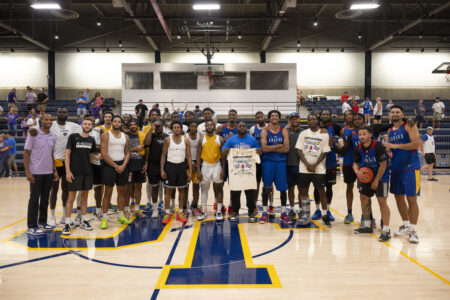Keegan: Ratings hold up quite well
Autumn of 1977. Introduction to Journalism class at Marquette University, which, by the way, had four returning starters from a national championship team. Frank Clines teaching. He had us all read our stories out loud. After mine, he burst out laughing.
“Pardon me for laughing,” said Clines, a dead ringer of a sound-alike and look-alike to recently departed actor Bruno Kirby. “I was just trying to picture what would happen if you turned this in at the (Milwaukee) Journal.”
And then he laughed some more, by which time my face was redder than a fire engine, and my disdain for his thick New York accent never was greater. One friend, after being laughed at, marched out of the classroom, dropped the class, and switched her major.
Clines’ message was on point: If you want a career in journalism, you had better grow thick skin. Fine, but that was before the Internet, a handy vehicle for readers to vent instant and anonymous feedback.
It wasn’t until reading the reaction to the (pardon the third-person reference) Keegan Ratings posted on KUsports.com after each Kansas University basketball game that it became evident just how dumb, blind (at least when watching a game), biased (in favor of and then against Mario Chalmers) and generally clueless and annoying a person I truly am.
And that was just the feedback from those who didn’t have to cheat to make it out of bathroom wall writing class with a C. Those posters’ messages were disregarded.
Yet, once the season statistics were calculated, it’s difficult to dispute that, in terms of each player’s value to the team, the ratings were pretty much on the money.
Each player was rated in order of their positive influence on the team for that game, with a 1 assigned to the top player.
The final standings, with the average rating: 1. Brandon Rush 3.34; 2. Julian Wright 3.55; 3. Mario Chalmers 3.66; 4. Sherron Collins 4.45; 5. Russell Robinson 4.46; 6. Darrell Arthur 4.95; 7. Darnell Jackson 5.89; 8. Sasha Kaun 6.03; 9. Rodrick Stewart 9.07; 10. Jeremy Case 9.37; 11. Brady Morningstar 9.75; 12. Matt Kleinmann 11.18; 13. Brennan Bechard 12.5; 14. Brad Witherspoon 13.1.
Certainly, it could be argued that Robinson was more valuable than Collins, but don’t forget that stretch when Collins was the team’s best player. He completely changed the offense, opening things up for everybody. Then his knee went bad and so did the offense. Coincidence?
Also, a case could be made Jackson had more value than Arthur, but early in the season, Arthur was first in the ratings and Jackson hadn’t yet hit stride.
Overall, I’ll give myself an A (for arrogant; beat you to it) for ratings accuracy and an F for interaction, with a promise to do much better in the latter department next year. Interacting with anonymous strangers doesn’t come naturally to most from my generation. After all, to us, “my space” used to mean privacy. Now, it means sharing intimate details about yourself with the World Wide Web.
Time to adapt.







